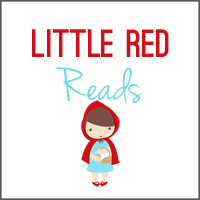 |
| Photo copyright Heather Zahn Gardner |
Jacqueline Osherow is a teacher of biblical poetry and its legacy at the local university who I had the opportunity to interview for Utah Book Month. As a child, she always wanted to be a writer thanks to a marvelous fourth-grade teacher in Hebrew school, Mrs. Gelman, who instructed her on the possibilities and mysteries of biblical text. She was also inspired by her parents who often read from anthologies. Her father, a lawyer, read Tennyson at the dinner table. In particular, Jacqueline remembers The Rhyme of the Ancient Mariner being read in her childhood home. She also enjoyed Psalms as a source of inspiration, and loved Stephenson’s A Child’s Garden of Verses (in particular The Swing.) Her favorite nursery rhyme being The Cow That Jumped Over the Moon.
Osherow’s first book was published in 1988– when she was 32 years old. She now has six books in print and feels that being both an author and a professor is a great combination. ” If I’m actually engaged in writing, I can be more useful to my students. Writing is a very solitary thing. The beauty about being a professor is that I can interact with people who care so much about what I also care about. The university has a wonderful program in its graduate school. Students keep me young with the purity of their relationship to poetry, their love of poetry, and that excitement and thrill over a great line.”
Mrs. Osherow enjoys poems by King David, Dante, Shakespeare, Keats, and Byron. She also loves Donna Herbert, Hopkins, Langston Hughes, and Robert Hayden. Her teacher, Robert Lowell, still inspires her as well.
As a Jew born in 1956, Osherow is obsessed by the Holocaust. She married the son of survivors who met at at the Dachau concentration camp. She has visited Treblinka and several other camps in Poland
She’s especially interested in the hybridization of tradition and newness. ” I believe in never making stuff up but in interacting with the world as it has presented to me. I don’t change the facts; ther’es an obligation to be accurate”.
“If you’ve never read Keats or Coleridge, you can’t write poetry. The more you know, the more you become aware of what’s possible, what’s been done before, and what’s new and fabulous. The more you read, the more you have access to.” She’s dubious that you could ever really write something truly new. In the words of Solomon “there’s nothing new under the sun.” She adds, “the only newness that comes is your voice and your particular connections.”
The Bible is another popular theme base that shows up in much of Osherow’s writing. She is very interested in Jewish tradition and Jewish literary tradition. “I’m glad my children have an ancient tradition to connect to; I like having tradition and care a great deal about history.” While Osherow’s father was brought as a baby to America from Eastern Europe, she’s quite certain her great-grandparents would not recognize her religion–for instance, the fact that, as a woman, she can chant from the Bible. She explains :”Women didn’t chant– and still can’t chant– in Orthodox Jewish religion. The sense of change is built into Judaism. It’s a religion that has changed with the times.”
When asked about creative exercises, Osherow claims that she personally doesn’t have any and doesn’t teach any to her students. ” Exercises may work for other people but I believe in simply writing about the thing that obsesses me. Work is always progress, and writer’s block comes from demanding that you immediately produce something useful. If you work, you get somewhere–even if it takes a long time. It usually doesn’t happen all at once–that’s very, very rare. Writing is a long process of working, working chiseling and chiseling some more.”
Osherow is currently finishing her seventh manuscript with the tentative title White On White. She’s also working on a very complicated project through the University Research Committee which is sending her to Alhamra, Spain. As a part of her project, Ms. Osherow will take a long time studying wallpaper symmetry patterns. “It’s daunting, but doesn’t feel impossible. I’ll set out and maybe I’ll get there; it’s exciting.”
“I always have a backlog of things to explore– other really valuable things that I never drop; I just put them off because I have a busy life. The stuff that sticks with me is the stuff I use in my poems. I read a lot about place. Place means a great deal to me.”
Her advice to people who want to be published: read, read, read, and read more. Second–be stubborn. For those who want to be published in poetry, her advice is to “get a Norton anthology. When you find someone you love, read everything they wrote. Get a real sense of what’s possible, of what’s been done. ” “Go after what you are interested in; ideally, do something you can do. I spent a lot of time emulating Dickinson but eventually you have to sound like yourself. You have to be stubborn– especially about poetry.There’s a lot of rejection in tyring to get publsihed in poetry. About 99.9% of it gets rejected; so be thick-skinned.”
She added, “If I’m working, I’m satisfied. If you do those things, if you are stubborn– and if you push it– someone will like it. The pleasure has to come not from what other people are doing, but from what you are doing. You have to be the one who is happy with your work.”
“You are the judge, not these other guys, and the advice they give you has to resonate. If you’re doubtful about something– get rid of it. If everybody in the room says something negative, but you can articulate why you need it; keep it. If only you like it, then take it out.”
Ultimately, Osherow hopes that her students “will notice more than they have noticed before, that they will be better leaders, and be more attentive readers.” She enjoys teaching students to notice more and to polish their abilities to clearlycommunicate what they notice. In the words attributed to Paul Celan “poetry gifts to the attentive. The definition of art is a great fresco; the more you look at it, the more you notice. It’s not so much imparting information as having the skills to really open that piece of art.”
Author Bio: Raised in Philadelphia, poet Jacqueline Osherow received her BA from Radcliffe College, Harvard University, and her PhD from Princeton University. She is the author of several collections of poetry, including Hoopoe’s Crown (2005). Her debut collection, Looking for Angels in New York (1988), was chosen for the Contemporary Poetry Series.
Often inhabiting a variety of demanding formal structures such as terza rima and the double sestina, Osherow’s poetry is both conversational and learned, concerned with the intricacies of faith and the weight of history. As a reviewer for Publishers Weekly noted, Osherow is “a poet who offers opinions and reactions to the weightiest questions of history and religion, while sounding less like an authority than like a particularly well-traveled friend.” She is particularly interested in biblical inconsistencies, and her psalms have their root in the holy poems she heard as a child at temple. In a 1999 essay for the Poetry Society of America, Osherow wrote, “If I write out of a specific poetic tradition, it is the Jewish poetic tradition, American poet though I am.”
She has been awarded the Witter Bynner Prize by the American Academy and Institute of Arts and Letters, several prizes from the Poetry Society of America, and fellowships from the Guggenheim Foundation, the National Endowment for the Arts, and the Ingram Merrill Foundation.
Osherow’s work has been anthologized in Twentieth Century American Poetry (2003), The Wadsworth Anthology of Poetry (2005), Jewish American Literature: A Norton Anthology (2000), and The Penguin Book of the Sonnet (2001), and twice in Best American Poetry.




















Jessica (The Bluestocking Society)
Great interview! I haven’t read much poetry since graduating with my English degree, and this has inspired me to go pull out some of those Norton Anthologies in my basement.
Thanks for participating in Utah Book Month!